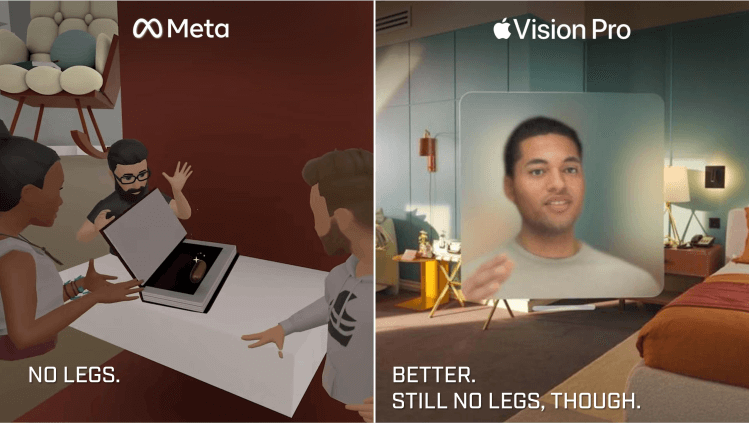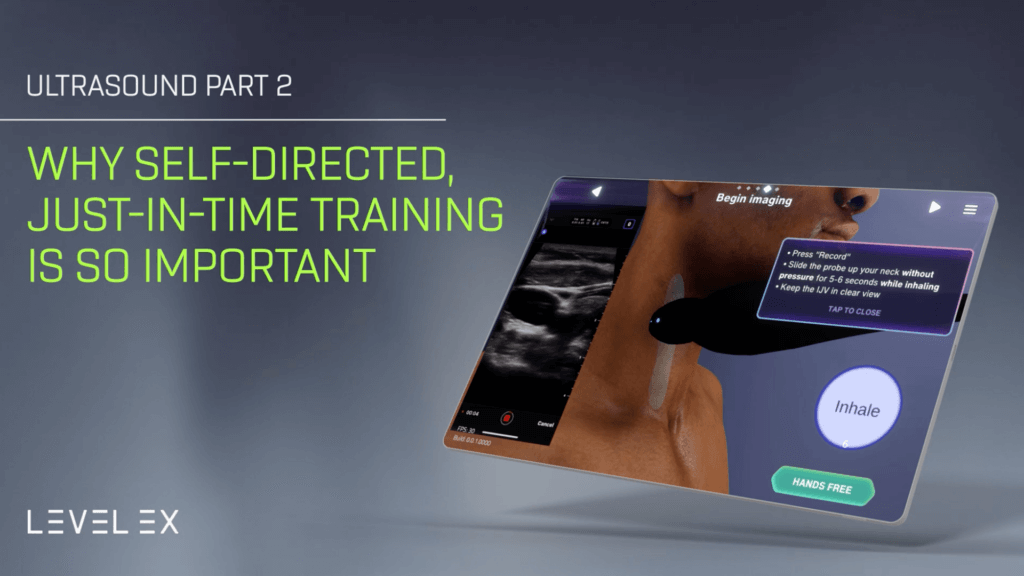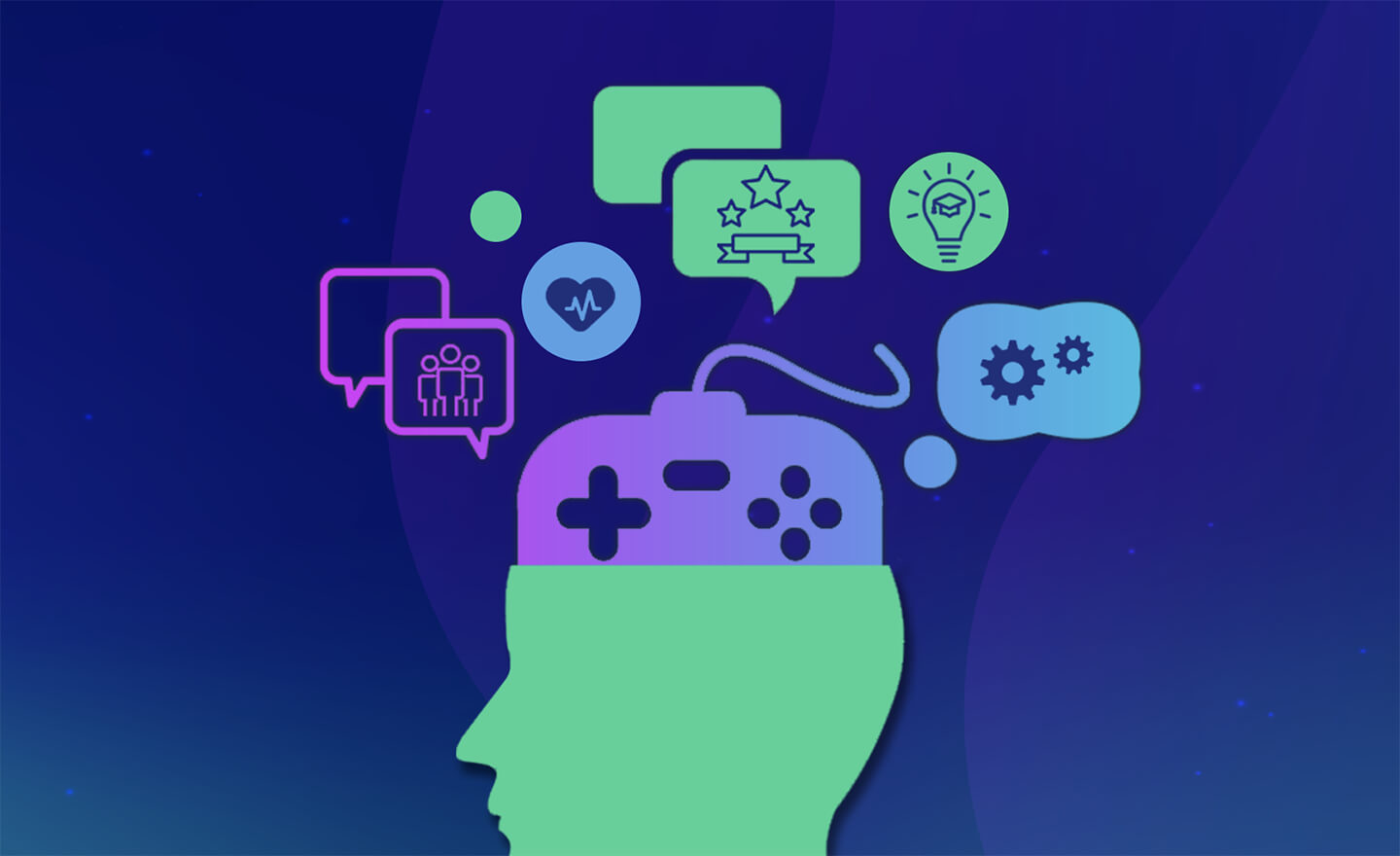
What Education Can Learn From Games
Think back to the first time you ever played a video game. How did you figure out how to play? Did you read the rule book or sit through 4 hours of lectures to learn what would happen if you were to smack into the ghosts in Pacman? Or did you ever wonder why people completely lose track of time playing games? Or why your kid has a deeper understanding of Minecraft than mathematics?
The magic of games, and their ability to inspire fun, can be attributed to intentional design using cognitive psychology—the same cognitive psychology that is the key to understanding how people learn. Games and learning are deeply intertwined. We can learn a lot about education through studying games and vice versa. To better understand the connection between these concepts, we’re going to explore some of my favorite cognitive learning theories.
Experience: The Best Teacher
As James Paul Gee describes in his book What Video Games Have to Teach Us About Learning and Literacy, “game play is built on a cycle of ‘hypothesize, probe the world, get a reaction, reflect on the results, reprobe to get better results…’” [Gee, 2018]. This active experimentation is a vital element of David Kolb’s Learning Cycle, which states that “learning is the process whereby knowledge is created through transformation of experience” [Kolb, 1984, p. 38]. This experiential learning cycle starts with concrete experiences or situations followed by a period of comparative reflection to previous experiences and understanding. This is followed by a period of abstract conceptualization where the learner modifies any pre-existing conceptual models followed by cycles of active experimentation (trial and error). We see children go through this process as they throw things on the ground incessantly (only to have their parents pick it up) as they try to understand gravity and objects.
An example in action would be to imagine you’re playing Mike Tyson’s Punch Out and you find a perfect strategy for Glass Joe on the first level, but then you face Von Kaiser on level 2 and attempt those same strategies, only to find out that they no longer work. You must sit and watch the idiosyncrasies of that new opponent, change your strategy, and experiment with new strategies until you are able to win the round. This is amplified when you rematch those previous opponents later in the game, and now they have evolved new strategies to evade your skills. The identical process happens with learning. As learners, we are constantly going through this cycle as we continually refine our conceptual understanding of the world and phenomena around us. Games accelerate this process by finely tuning these experiences to maximize your learning and growth of skill throughout the game.
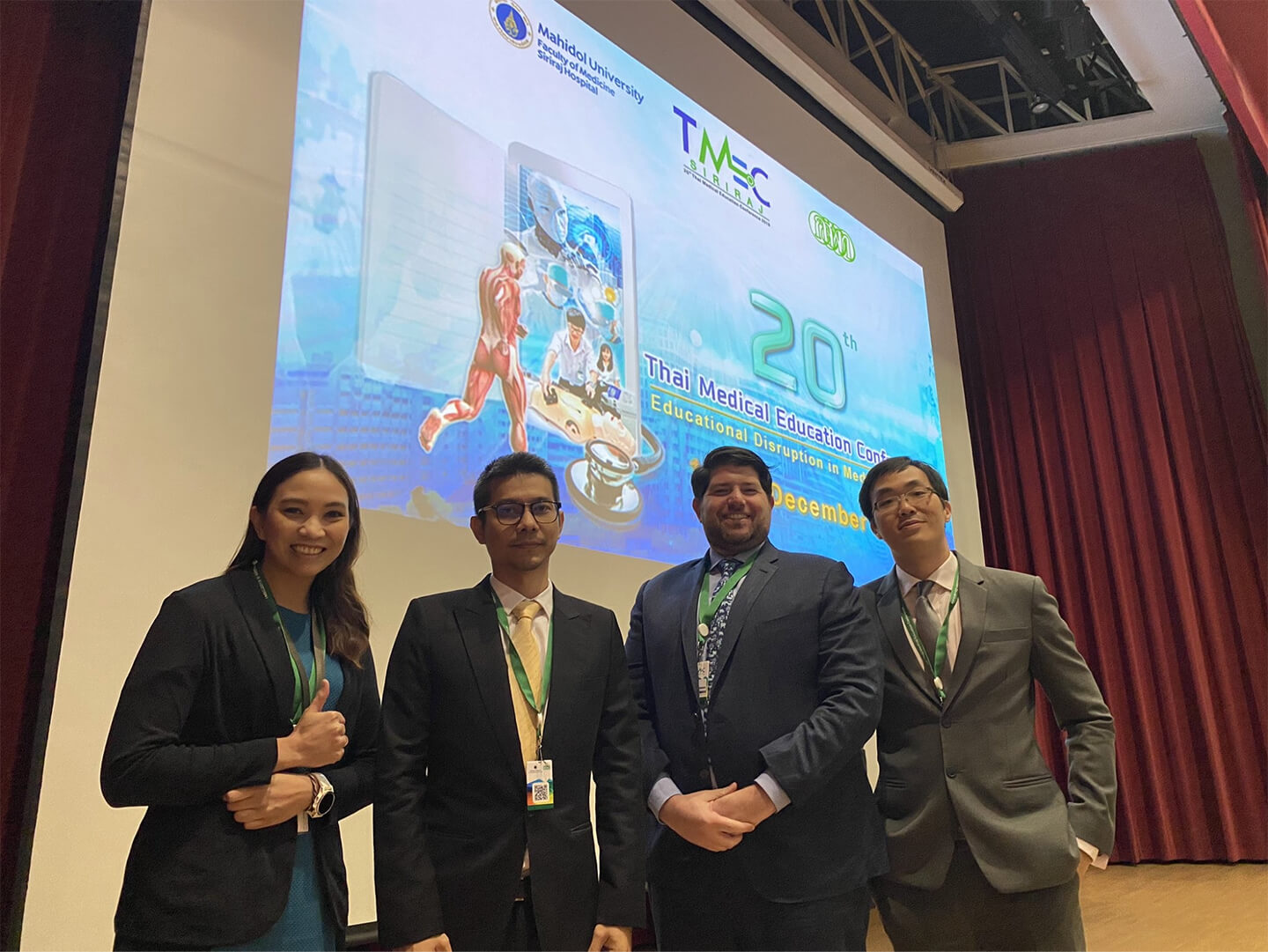
Photo of me in Bangkok, Thailand giving an invited presentation on the future of technology and games in medical education at the 20th Annual Thai Medical Education Conference.
The Goldilocks Zone
That process of maximal growth is based on the principles of skill attainment. In games, a perfect match of challenge in lock step with skill development leads to the best experience. Imagine you were again playing Mike Tyson’s Punch Out and were dropped into challenging Mike Tyson after beating Glass Joe. You wouldn’t stand a chance and would get so frustrated that you would end up quitting prematurely. A similar example in the education sphere would be your professor giving a final exam on the second day of class. These are stark examples, but in games, designers keep players at the edge of their abilities in what is referred to as the Regime of Competence (ROC).
In education there is a very similar concept described by Lev Vygotsky called the Zone of Proximal Development (ZPD). The ZPD is essentially the sweet spot, or what I call the Goldilocks zone, where students (and players) will be optimally challenged and advance the furthest along their learning path. This also involves scaffolding during which you get slight assistance from a teacher or the game that allows you to achieve tasks just above your ability level; these are termed desirably difficult tasks. Tasks that are too easy are often not interesting and, in games, would result in a player exiting the experience or a learner disengaging (imagine someone giving you directions back to your own house). Challenges that are too difficult lead to frustration and ultimately to the player dropping out or the learner getting overly discouraged. This is why level design (and curriculum) design is so important throughout the experience [See Vygotsky (1978, 1987) for more on ZPD or DiSessa (2000) on ROC]. Keeping challenges that constantly test your skills fall into this Desirably Difficult realm and lead to the most efficient and best learning experiences.
Practice Makes Perfect
On the road to mastery in both games and education, it is commonly understood that practice makes perfect. In education we call this Deliberate Practice, colloquially known as the 10,000-hour rule (even though this is a misrepresentation). This is not the typical kind of practicing we think about. These are the years of daily practice that are typified by violin players and olympic athletes where each session is a highly focused attempt at improving performance. Ericsson described this as repetition with very specific targeted goals and immediate feedback [Ericsson, 2008].
Imagine in Guitar Hero when you come to the “Cliffs of Dover” level and realize that it is way too difficult. You go back in the game and practice and practice until you are able to face that challenge again with renewed confidence and ability and imagine the rewards when you do! This is the same in the game as in education. Surgical trainees work for years trying to perfect their skills to the point of mastery. As an ENT resident, we were required to practice a highly difficult surgery, a stapedectomy, at least 50 times the day prior to being guided through the surgery by our attending the next day. The goal is always to improve your performance and advance knowledge and skills. In education we hope that studying achieves the same goal, but oftentimes low stakes testing, termed retrieval practice, can help inform and drive your learning. This is actually why flashcards and quizzes can improve your learning much more than rereading and highlighting.
Go with the Flow
When players and learners are fully engaged in challenges, they may enter something termed the Flow State. Flow is a concept described by Mihaly Csíkszentmihályi that is a period of intense concentration and learning where all external factors (like time and distractions) are ignored. Many have experienced these flow states during games and/or education when you totally lose track of time and are completely engrossed in a task [Csíkszentmihályi, 2014].
This period provides maximally efficient learning and is often achieved in games with certain criteria such as very specific and obvious goals and progress, clear and immediate feedback on performance, and a sense of confidence in a player’s ability to complete the task. In games, flow is achieved in games like Candy Crush during which the user immediately knows what the goal is (match and clear tiles) and immediately knows how they are doing (tiles disappear or don’t), and players get into this zone of clearing tiles and lose all sense of time. In Cardio Ex, we present the player with very clear goals (fix the stenosis) and give them immediate feedback as they navigate the level, trying to achieve that flow state.
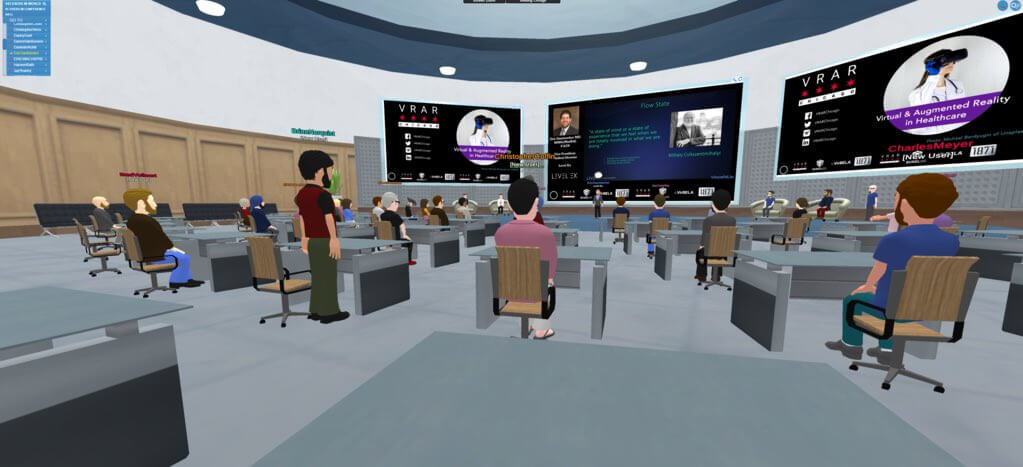
Photo of me speaking at the virtual VR/AR Chicago conference.
As you can see, there is an endless list of theories that apply both in education and games. The way games use the cognitive psychology of how people learn and neuroscience of reward and frustration provide an elegant learning experience that all disciplines can lean on. I have readily adapted these concepts into my teaching of medical students and surgical residents with great effect and will continue to teach other faculty and trainees to do the same. Together we can integrate these principles and powerful techniques to supplement more antiquated ones such as didactics and lectures.
About Eric Gantwerker, MD, MMSc (MedEd), FACS

Eric Gantwerker, MD, MMSc (MedEd), FACS is a practicing academic pediatric otolaryngologist and Vice President, Medical Director at Level Ex. At Level Ex, he leads the company’s medical and educational strategy, directs CME and product development, oversees efficacy studies, and manages the company’s robust physician advisory board as well as relationships with hospitals, institutions, societies and organizations. He holds a Master’s of Medical Science (MMSc) in Medical Education from Harvard Medical School and a Master’s of Physiology and Biophysics from Georgetown University. He specializes in applying the cognitive science of learning, motivational theory, and educational technology to medical education and speaks both nationally and internationally on these topics.
To learn more about how we use video games to advance the practice of medicine, visit our website.
References
Csikszentmihalyi, M. (2014). Flow and the foundations of positive psychology. Netherlands: Springer.
DiSessa, A. (2001). Changing minds: Computers, learning, and literacy. Cambridge, MA: MIT Press, A Bradford Book.
Ericsson, K. A. (2008). Deliberate practice and acquisition of expert performance: A general overview. Academic Emergency Medicine: Official Journal of the Society for Academic Emergency Medicine, 15(11), 988–994. https://doi.org/10.1111/j.1553-2712.2008.00227.x
Gee, J. P. (2008). What video games have to teach us about learning and literacy (2nd ed.). Gordonsville, VA: Palgrave Macmillan.
Kolb, D. A. (1984). Experiential learning: Experience as the source of learning and development. Englewood Cliffs, NJ: Prentice-Hall. as cited in Smith, M. K. (2010). David A. Kolb on experiential learning. In The encyclopedia of pedagogy and informal education.
https://infed.org/mobi/david-a-kolb-on-experiential-learning
Kumar, J. M., Herger, M., & Dam, R. F. (2019). A brief history of games. https://www.interaction-design.org/literature/article/a-brief-history-of-games
Vygotsky, L. S. (1978). Mind in society: The development of higher psychological processes (Revised ed.). Cambridge, MA: Harvard University Press.
Vygotsky, L. S. (1987). Cognition and language. The collected works of L. S. Vygotsky, Vol. 1. Problems of general psychology (R. W. Rieber & A. S. Carton, Eds.). New York City, NY: Plenum Press.

